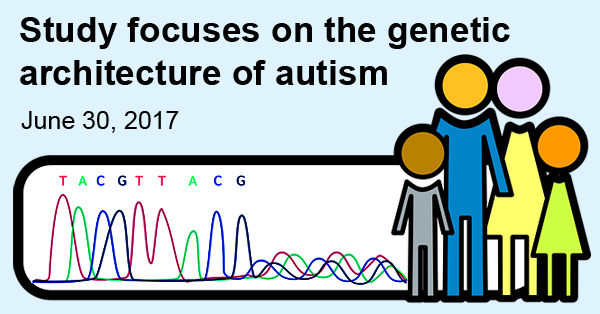Check out other stories from the Latest News
Autism Linked to Disproportionate Gene Inheritance
By Chelsea E. Toledo, M.A. and Sharmila Banerjee-Basu, Ph.D. on June 30, 2017

Background: Autism spectrum disorder, or ASD, is highly heritable. For instance, children who have a sibling with an ASD diagnosis are far more likely to be diagnosed with the disorder themselves than children whose siblings don’t have ASD. While that trend and other findings have pointed to genetic risk factors contributing to ASD, it is not yet clear how the inheritance and expression of genes leads to the disorder.
What’s New: On May 15, 2017, the journal Nature Genetics published a study exploring genetic architecture underlying ASD. In this study, the authors analyzed data from 6,454 families with at least one child with a diagnosis of ASD. The team of scientists calculated common polygenic risk for ASD, educational attainment, and schizophrenia for all genotyped family members. They found that polygenic risk—variations in multiple genes associated with the condition—was significantly over-transmitted to affected children but not to unaffected siblings. Moreover, the common polygenic variants contributed to ASD risk even in children with damaging autism-associated genetic change that is not present in either parent.
Why it’s important: This study suggests that autism risk is additive. Both common and rare variants comprise the genetic architecture in ASD. Children with ASD also over-inherited genetic variants related to schizophrenia and educational attainment indicating their positive association.
Help me understand :
| Source(s) : |
| Tweet |

